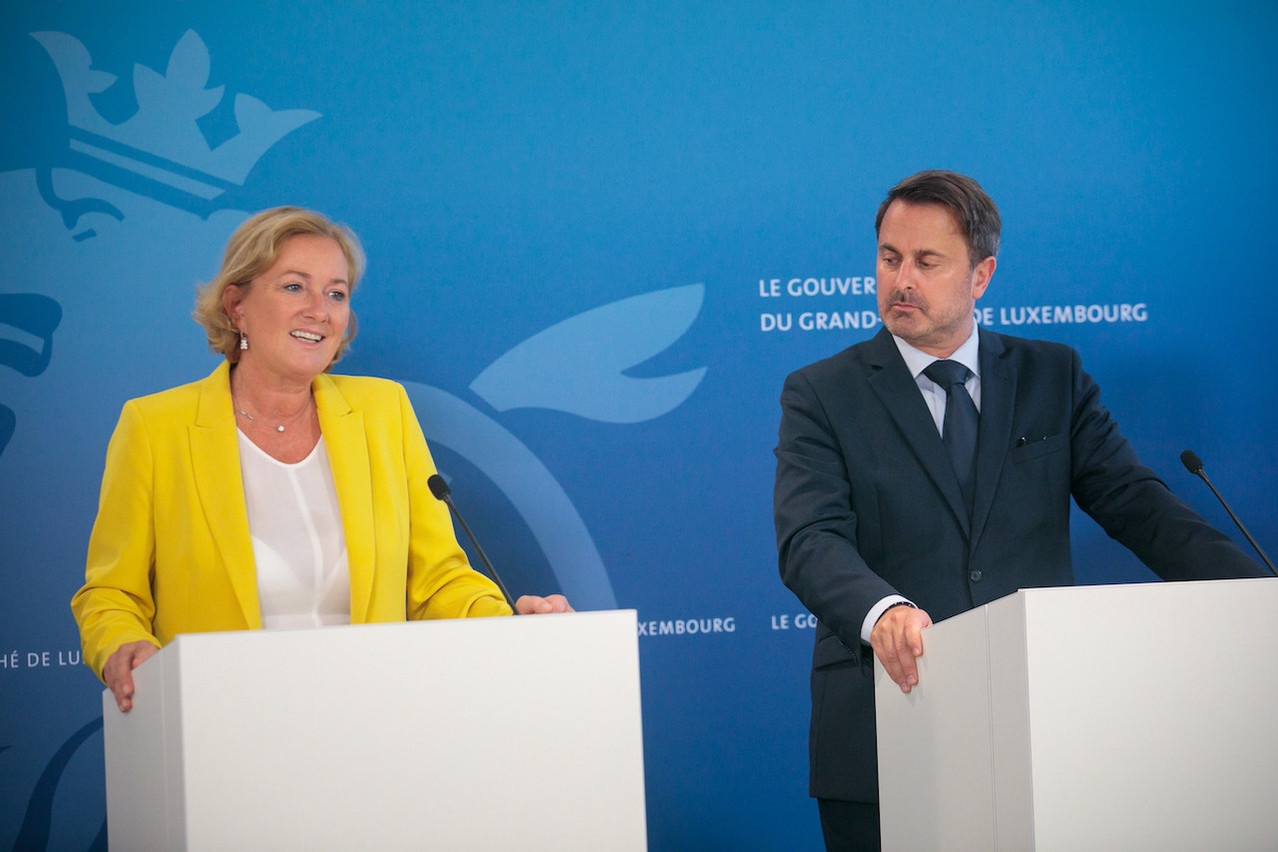Health minister and LSAP deputy prime minister is still the most popular politician in the grand duchy, according to the latest Politmonitor poll. The poll, conducted by Ilres for RTL and Wort, asks questions about the competence, renown and likeability of leading politicians from all parties.
Lenert, who took the number one spot from her LSAP colleague foreign minister in July 2020--the first poll after the start of the covid pandemic--has seen her combined competence and likeability score remain stable at 79% (she had reached as high as 90% two years ago).
Asselborn, who had slipped to third place behind prime minister during the pandemic, has retained second place, even though his score fell by four percentage points to 75%. Bettel gained one percentage point to place third on 72%.
New cabinet ministers fail to shine
Bettel’s party colleague and a mentor during his early political career, city mayor , is some way back in fourth place on 62% ahead of Pirate Party’s on 60% (a fall of three percentage points) in fifth. The DP’s , who entered cabinet this year to take on the finance portfolio, scraped into the top 10 for the first time with a score of 46% (an increase of 5%).
Coming in at 13th with a score of 44%, employment and sports minister Georges Engel (LSAP) was the best placed of the other new members of cabinet. Meanwhile, Claude Haagen (LSAP), who took over the agriculture and social security portfolios in January, placed 28th with 31%, while brand new environment minister Joëlle Welfring (Déi Gréng) was 30th on 31%.
Local elections indicators
Polfer’s prominence will surely persuade her to run again for mayor in next June’s communal elections. She has still not officially declared her interest, but the only member of her DP party who could hope to gain as many votes is family minister Corrinne Cahen, who languishes in 26th place on just 33%.
Of the other politicians featured in the poll who are likely to be leading their party at the Luxembourg City elections next year, Serge Wilmes (the CSV’s deputy mayor) scored 43% and placed 14th. Wilmes’s fellow CSV alderman Laurent Mosar scored 37% to place 21st in the poll. François Benoy of Déi Gréng polled 24% and placed 38th, Fernand Kartheiser of the ADR also scored 24% but placed 40th, even though, according to the polls, he is far more well-known than Benoy. LSAP co-lead candidates Gabriel Boisante and Maxime Miltgen did not feature in the poll, nor did Déi Lénk’s current councillors Guy Foetz and Ana Coreirra da Vega, though Nathalie Oberweis, who is a resident of the capital, placed 32nd on 29%
However, the poll was conducted only among Luxembourgers, so those non-Luxembourg residents who have registered to vote in the local elections could still make a difference.
Opposition ranks low
Clement, who only entered parliament at the last general election in October 2018, is by some way the most popular MP from the opposition benches. CSV party leader Claude Wiseler is in 7th place but only manages to register a score of 51% (a loss of two percentage points). Clement also scores well in being known among the 18 to 24-year-old age group, many of whom will be voting for the first time in next October’s parliamentary election.
But only four CSV politicians score above 40%--Paul Galles and Gilles Roth join Wiseler and Wilmes--which does not bode well for a party that was once seen as the natural party of government and has now languished in opposition for close to ten years.
